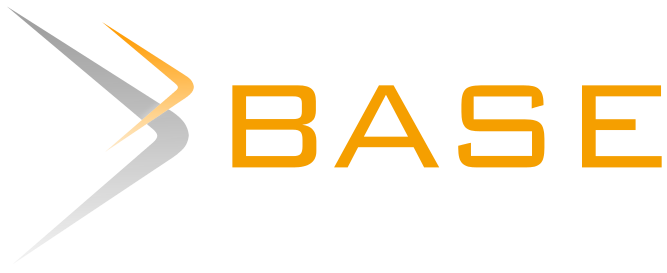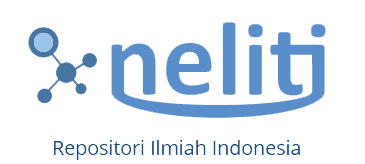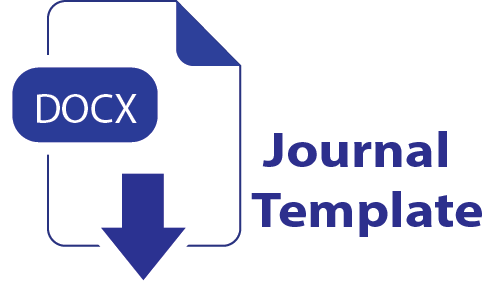PENGARUH KEPEMIMPINAN TRANSFORMASIONAL, DESAIN PEKERJAAN DAN PENGEMBANGAN KARIR TERHADAP KEPUASAN KERJA DIMODERASI OLEH TEKNOLOGI PADA GENERASI MILENIAL DI INDUSTRI PENDIDIKAN
DOI:
https://doi.org/10.35908/jeg.v6i2.1530Abstract
The quantity of millennial generation is increasing every year, including the working millennial generation. At work, millennial generation satisfaction is still lower than the generation above. Job satisfaction is an important aspect that companies need to evaluate because it will affect employee performance, which ultimately leads to employee loyal ty or turn over. According to Robbins & Judge (2017) and Armstrong (2014), factors that affect job satisfaction are leadership, job design, career development, coworkers, and work environment (one of which is technology).The purpose of this study was to analyze the influence of transformational leadership, job design, and career development on job satisfaction of millennial generation employees with technology moderation. This research was conducted by distributing gform questionnaires to 205 respondents from the millennial generation in the education industry, in Jakarta. The results of this study explain that the variables of transformational leadership, job design, career development and technology can affect job satisfaction by 80%, the rest is influenced by other factors.The variables of transformational leadership, job design, career development and technology have a significant positive effect on job satisfaction variables. Meanwhile, the technology variable as a moderating variable does not have a significant effect in moderating exogenous variables against endogenous variables.
References
Armstrong, Michael; Taylor, Stephen. 2014 Armstrong's Handbook of Human Resource Management Practice Manajemen Sumber Daya 13th Edition, Pearson,
Robbins, Stephen P; Timothy A. Judge. 2017 Organizational Behaviour17th Edition, Pearson,
Kementerian Pemberdayaan Perempuan dan Perlindungan Anak dengan Badan Pusat Statistik, 2018 Profil Generasi Milenial Indonesia, Kemen PPPA & BPS,
Martin, Carolyn A; Tulgan, Bruce. 2006 Managing The Generation Mix: Second Edition From Urgency to Opportunity, HRD Press, Inc,
Sutrisno, Edy. 2016, Kencana Prenada Media Group, Jakarta,
Sedarmayanti. 2013 Sumber Daya Manusia dan Produktivitas Kerja, Rafika Aditama, Bandung,
Torrington, Derek; Hall, Laura ; Taylor, Stephen. 2017. Human Resource Management 10th edition, Prentice Hall-Pearson,
Robbins, Stephen P; Coulter, Mary. 2012 Management 11th Edition, Pearson,
Luthans, Fred. 2011 Organizational Behavior: An Evidence-Based Approach, 12th edition, McGraw-Hill,
Herzberg, Frederick ; Mausner, Bernard; Snyderman, Barbara Bloch. 2017 The Motivation To Work, 1st edition, Routledge,
Lyle M. Spencer, Signe M. Spencer, 2008Competence At Work: Models for Superior Performance, John Willey & Son, inc,
Loma, 1998 Loma’s Competency Dictionary, Journal of the American Society of CLU,
Wibowo, Budaya Organisasi Edisi ke II, 2010, Raja Grafindo, Depok,
Maxwell, John C. 2020 The Leader’s Greatest Return, HarperCollins Leadership,
Bandura, Albert. 1971 Social Learning Theory, General Learning Press, New York,
E.A Locke, 1976 The Nature and Causes of Job Satisfaction, John Willey & Sons, New York,
VR Zainal, MD Hadad, M Ramly, 2014 Kepemimpinan dan Perilaku Organisasi, PT Raja Grafindo, Jakarta,
Sunyoto, Danang. 2015 Manajemen Sumber Daya Manusia, Caps Publishing, Jakarta,
Wirawan, 2015 Evaluasi Kinerja Sumber Daya Manusia: Teori, Aplikasi dan Penelitian, Salemba Empat,
Hackman, J Richard. 2002 Leading teams: Setting the stagefor great performances, Harvard Business Review Press,
L.Gibson, James; Konopaske, Robert; M Ivancevich, John. 2020 Organizations: Behavior, Structure, Processes, McGraw-Hill,
Creswell, John W. 2014 Research Design. Qualitative, Quantitative and Mixed Methods Approaches, Sage Los Angeles,
Hair Jr, Josep F; Black, William C; J Babin, Barry; E. Anderson, Rolph. 2014 Multivariate Data Analysis 7th edition, Pearson,
Sugiyono, 2017 Metode Penelitian Kuantitatif dan Kualitatif dan R&D, Alfabeta, Jakarta.
Ghozali, Imam. 2014 Partial Least Square: Konsep, Teknik dan Aplikasi Menggunakan Program SmartvPLS 3.0, Universitas Diponegoro Semarang,
Supriyadi, Edy. 2014 SPSS + AMOS, Statistik Data Analisis, Jakarta,
Kamus Besar Bahasa Indonesia (kbbi.kemdikbud.go.id).
Aube, Ronnie G. 2015. Transformational Leadership as a Predictor of the Job Satisfaction of Millennials. Dissertation. Northcentral University. Prescott Valley, Arizona,
Peramesti, Ni Putu Depi Yulia; Kusmana, Dedi. 2016. Kepemimpinan Ideal Pada Era Generasi Milenial. Jurnal Manajemen Pemerintahan Vol.10 No.1 Maret 2018: 73-84,
Lee, C Christopher; Cho, Young Sik. 2016. Factors affecting job satisfaction and retention of millennials.
Utomo, Agus Setiyo; Nainggolan, Andrika P N. 2020. Dampak gaya kepemimpinan transformasional terhadap kepuasan kerja pada ASN milenial di kementerian perdagangan,
A. Tschantz, Courtney. 2016. Increasing Job Satisfaction and Organizational Commitment in the Millennial Workforce. Thesis. Liberty University. Spring,
Hannus, Sonja. 2016. Traits of the millennial generation: motivation and leadership. Thesis. Aalto University School of Business. Department of Communication.
Yap, Wai Meng; Badri, Siti Khadijah Zainal. 2020. What Makes Millennials Happy in the Work Place. Asian Academy of Management Journal, Vol.25, No.1, 103-121. Help University. The University of Nottingham Malaysia Campus, Malaysia.
Selfia Alke Mega (2015) Peranan gaya kepemimpinan dalam meningkatkan loyalitas melalui kepuasan kerja pegawai PT Pandan Sari Bandar Lampung. Jurnal Manajemen dan Bisnis Vol. 5 No. 2 April 2015 ISSN: 2087-0701. JURMABIS Hlm 112-235. www.jurnal.ubl.ac.id. Program Studi Manajemen Fakultas Ekonomi dan Bisnis. Universitas Bandar Lampung (UBL).
Adit Budianto, Istanto (2014) Pengaruh pemberian insentif, kondisi lingkungan kerja, dan kepemimpinan kepala sekolah terhadap kepuasan kerja guru di SMK Taman Siswa kota Yogyakarta. E-journal Universitas Negeri Yogyakarta Jurusan Pendidikan Teknik Elektro Vol. 3 No. 3 Januari 2014 198-205.
Ozge Oztekin Bayir, Esra Cakmak, Engin Karadag (2015) The effect of leadership on job satisfaction. Leadership and Organizational outcomes. Springer International Publishing Switzerland
S.O Onimole (2015) Work Design and Job Satisfaction. International Journal of Humanities and Social Science Vol. 5 No. 10 October 2015.
Muhammad Ali Hussain, M Waleed Ayub Ghouri, et al (2018) Impact of Job Design on Employee's Satisfaction Level in Pakistan. Advances in Social Sciences Research Journal, 5 (1) 325-336.
Effendi, Alfonsius, Syawaluddin (2018) Analisis pengaruh desain kerja dan sistem pemberian penghargaan terhadap kepuasan kerja karyawan PT Suminsurya Mesindolestari Medan. Jurnal Bisnis Kolega Vol.4 No.2 Desember 2018.
A.Moeed Abid, Ambreen Sarwar, Kashif Imran, Abdul Jabbar, Abdul Hannan (2013) Effect of Job Design on Employee Satisfaction (A study of fertilizer companies listed in Lahore Stock Exchange), Pakistan. European Journal of Business and Management Vol.5 No.19, 2013.
Fajri, Deni Kusuma. 2019. Profil Tenaga Kerja Milenial Di Indonesia Pada Era Revolusi Industri 4.0. FRMA 2019. Festival Riset Ilmiah Manajemen & Akuntansi. ISSN 2614-6681.
Tambengi, Kevin F.S; Kojo, Christoffel; Rumokoy, Farlane S. 2016. Pengaruh Kompensasi, beban kerja, dan pengembangan karir terhadap kepuasan kerja karyawan pada PT Telekomunikasi Indonesia Tbk. Witel Sulut. Jurnal EMBA. Vol 4 No 4 Desember 2016 Hal 1088-1097.
Herold, Sarina. 2019. Ever-changing Needs of the Workforce: Unconventional Approaches to increase Job Satisfaction, with special focus on Millennials and Generation Z.
R Ratna, T Kaur. 2016. The impact of Information Technology on Job Related Factors like Health and Safety, Job Satisfaction, Performance, Productivity and Work Life Balance.
Terek, Edit; Cvetkoska, Violeta; Vukonjanski, Jelena. 2018. The influence of Information Technology on Job Satisfaction and Organizational Commitment.
Barbara A Sypniewska (2013). Evaluation of factors influencing job satisfaction. Contemporary Economics, 8 (1): 57-118
Downloads
Published
How to Cite
Issue
Section
License
Authors who publish with this journal agree to the following terms:
- Authors retain copyright and grant the journal right of first publication with the work simultaneously licensed under a Creative Commons Attribution License   that allows others to share the work with an acknowledgement of the work's authorship and initial publication in this journal.
- Authors are able to enter into separate, additional contractual arrangements for the non-exclusive distribution of the journal's published version of the work (e.g., post it to an institutional repository or publish it in a book), with an acknowledgement of its initial publication in this journal.
- Authors are permitted and encouraged to post their work online (e.g., in institutional repositories or on their website) prior to and during the submission process, as it can lead to productive exchanges, as well as earlier and greater citation of published work










